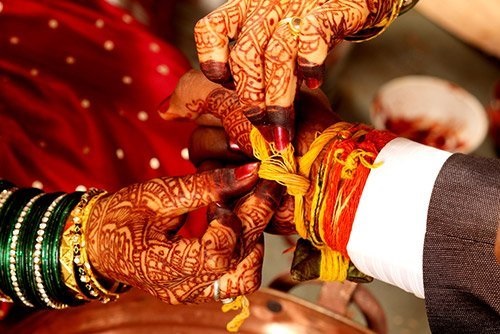The Evolving Role of Marriage in the 21st Century

Marriage has been an essential institution in human society for centuries. It has been considered a social and religious bond between two people, primarily for procreation and the continuation of the species. However, in the 21st century, the role of marriage is evolving, and people have different expectations from this institution.

The Traditional Role of Marriage
Traditionally, marriage was the union between a man and a woman. It was a legal and religious commitment to build a family and raise children. The husband was the breadwinner, and the wife was the homemaker. The roles were clearly defined, and the expectations were straightforward.
However, this traditional view of marriage has been challenged over the years. Women have been fighting for equal rights, and the concept of gender roles has been evolving. Now, more women are entering the workforce, and the responsibilities of homemaking and childcare are shared between spouses.
The Changing Expectations of Marriage
In the 21st century, the expectations of marriage have changed. People are not getting married solely for procreation or financial security. Instead, they are looking for emotional and mental compatibility. They want a partner who can support them, share their interests, and help them grow as individuals.
Moreover, people are getting married later in life. They are focusing on their careers, personal growth, and self-discovery before settling down. This delay in marriage has also changed the expectations from the institution. People are looking for more meaningful, long-term relationships rather than settling for societal norms.
The Rise of Non-Traditional Marriages
The 21st century has seen a rise in non-traditional marriages. Same-sex marriages have become legal in many countries, and people are embracing unconventional forms of relationships. Polyamorous and open marriages are also gaining acceptance, challenging the traditional monogamous view of marriage.
Furthermore, people are choosing to stay single and focus on their personal growth rather than getting married. This trend has gained popularity among millennials, who value their independence and freedom.
The Future of Marriage
The institution of marriage is evolving, and it is difficult to predict its future. However, one thing is certain – people will continue to seek meaningful relationships and emotional connections. Marriage may become more inclusive, with more acceptance of non-traditional forms of relationships.
Moreover, technology will also play a role in the future of marriage. Online dating has already changed the way people meet, and virtual reality may become a part of the dating experience. The rise of artificial intelligence may also impact the institution of marriage, with the possibility of people marrying robots or other forms of AI.
The role of marriage in the 21st century is evolving, and it is becoming more inclusive, personal, and diverse. People are seeking meaningful relationships and emotional connections, and the traditional view of marriage is no longer the only option. The future of marriage is uncertain, but one thing is for sure – it will continue to adapt to the changing needs of society.



